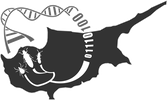Welcome to this free online training resource on bioinformatic methods for biodiversity metabarcoding. This site provides instructions and exercises for carrying out bioinformatic processing of metabarcoding data, going from raw reads to biological information suitable for downstream analysis. We provide instructions for getting started with Linux for bioinformatics, a step-by-step course to you can follow with the semi-real sequence data provided or with your own data, and discussion and links to help make the important decisions in designing your own pipeline.
This online resource was produced as part of the iBioGen consortium, an EU Horizon-2020 funded project under grant agreement No 810729. iBioGen is a consortium of four research groups from across Europe, working together to develop and synthesise methods for Island Biodiversity Genomics. Read more about iBioGen here.
Authors
Dr Thomas J. Creedy
Thomas works on metabarcoding of arthropod communities, with a focus on tropical rain forest communities and developing metabarcoding bioinformatic methods.
Thomas's websiteProfessor Alfried P. Vogler
Alfried is Professor of molecular systematics at Imperial College London and the Natural History Museum London, leading a research team studying global patterns of Coleoptera diversity and evolution with genetic methods.
Alfried's webpageLiam Penlington
Liam has recently completed an undergraduate degree in biological sciences at Imperial College London. During his final year project he used metabarcoding to asses the impact of an insecticide spill on aquatic macroinvertebrate communities.
The authors are grateful for input from Dr Victor Noguerales Rodriquez, Emmanouil Meramveliotakis and Professor Anna Papadopoulou in generating these resources



